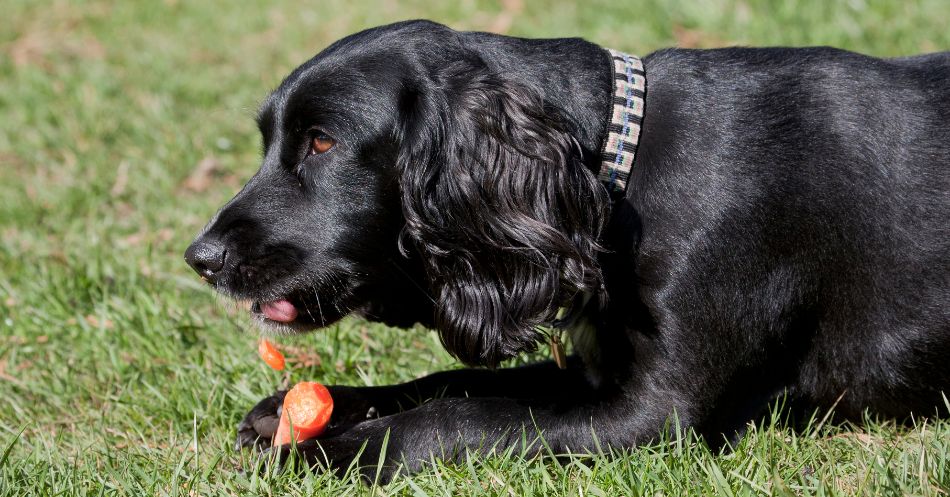
Can Dogs Eat Carrots?
They’re crunchy, vibrant, and fun to eat… it’s no wonder your dog stares at you whenever you bite into a bright orange carrot! This may lead you to wonder if you can let your dogs eat carrots safely without interfering with their routine diet.
Sharing the orange snack with your pup may be tempting when you’re out of dog treats and want to reward your canine with something tasty.
But can dogs eat carrots safely? The short answer is yes. Dogs can safely eat carrots. Carrots are low in calories and a good source of vitamins, fiber, and potassium. As with any treat, give them in moderation. Ensure the carrot piece you give is appropriate for your pup’s size, and always observe them while they’re eating.
In this post, we’re breaking down the 411 on “Can dogs eat carrots?” and highlighting the benefits and potential health hazards, tips on how to serve carrots to your dog, and more.
Pin Me Now, Read Me Later!

Health Benefits of Carrots
Adding carrots to your dog’s diet can provide a few beneficial vitamins, minerals, and other nutritious elements that will contribute to their health. Here are the most significant health benefits of letting your dog eat carrots.
Vitamins & Minerals
Carrots are rich in vitamins A, K1, and B6. These vitamins help boost your dog’s energy levels, power their immune system, and reduce inflammation. Carrots are also rich in potassium, which helps with maintaining heart health in both humans and dogs.
Beta-Carotene
Beta-carotene is an organic vitamin found in bright fruits and vegetables. When dogs eat vegetables rich in beta-carotene (like carrots), their bodies turn this into a more active form of vitamin A, which helps promote vision, bone growth, and immune response in dogs.
Fiber
One cup of chopped carrots has about 3.6 grams of fiber. The fiber your pup gets depends on how much you give them (see the table below for the right amount). Fiber offers a variety of health benefits for dogs, such as helping with weight management and blood sugar control.
Low Calorie & Low Fat
As far as treats go, carrots are one of the best human foods you can feed your dog. With minimal calories—about 45 per cup of chopped carrots—and less than a gram of fat, carrots are a great low-calorie, low-fat snack for your best friend, particularly if they are on a weight management diet.
Risks and Dangers of Feeding Your Dog Carrots
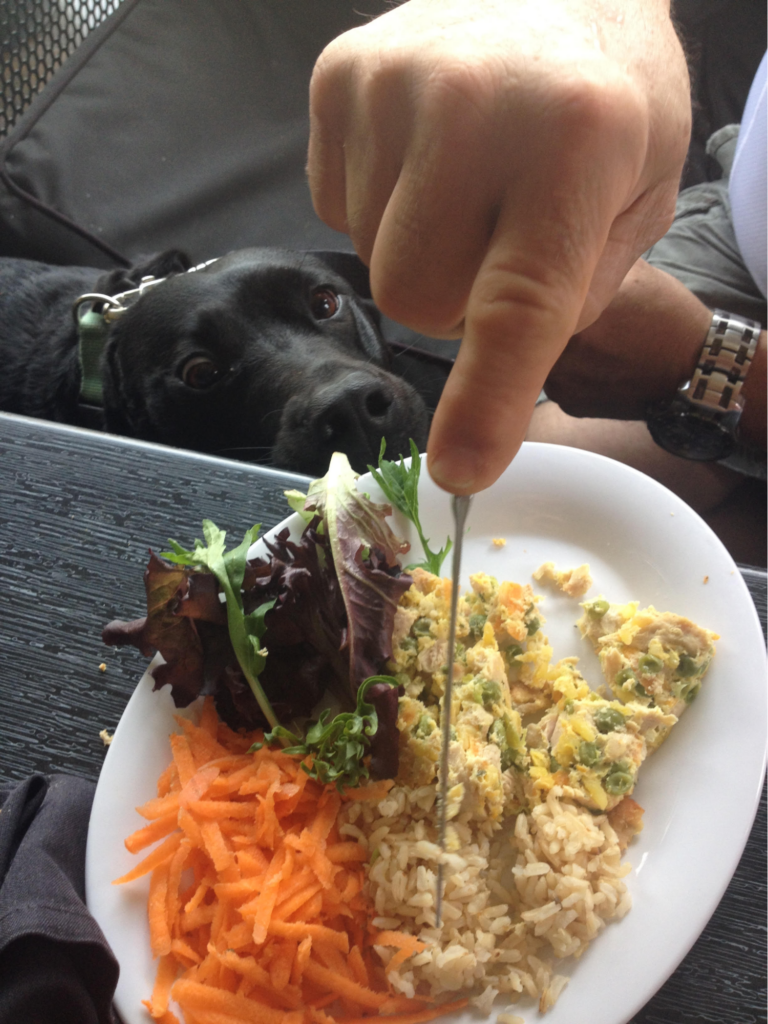
Chilly using his ultimate weapon (puppy-dog eyes) to get some tasty carrots
Carrots are considered a safe human food for most dogs to eat. But if your pup has health or stomach problems, check with your veterinarian before adding new foods to their diet. As always, moderation is key, and other snacks and human foods should only represent 10% of your dog’s daily caloric intake. There are a few risks posed by eating carrots:
High Sugar Content
Although they’re considered healthy vegetables, carrots do contain more natural sugar than other veggies.
If your dog is on a weight management plan with a veterinarian or has diabetes, you may want to try offering them veggies with low-sugar content, like celery, cucumber, or broccoli, or fruits like blueberries.
Choking Hazard
Don’t just grab a handful of carrots from the bag and toss them at your furry friend. Whether you have baby carrots or sticks, cut them up into ¼ inch thick slices, lengthwise so your dog can chew and swallow them easily.
You don’t have to worry about your dog choking on cooked carrots as much as you should with raw carrots. Cooked carrots should be soft enough so that your dog can easily chew and swallow them in this form.
Signs of Bad Reactions to Carrots
If your dog eats too many carrots or has an allergic reaction, you’ll most likely notice the signs fairly quickly. Very few dogs are allergic to carrots, but it does happen. In this case, your dog will probably have diarrhea or experience itchy skin.
Sometimes, dogs overeat; it’s natural when they see the opportunity to scarf up every morsel in their sight. If you think your dog may have eaten too many carrots, they will probably vomit at some point during the day or night.
Be sure to call your veterinarian and let them know what happened. They may have recommendations to help your dog feel better, or if the reaction is severe enough, they may suggest bringing them in for an exam.
If your dog has food sensitivities or has displayed signs of allergies to certain human foods before, be cautious when feeding them carrots or any human food for that matter.
It’s best to start small—feed them a few bites and monitor their behavior for the day. If they seem to digest them well, try introducing a few more bites until you can confirm they aren’t sensitive.
Average Serving Sizes of Carrots For Dogs

Below are recommendations for serving carrots to dogs depending on their size. So how many carrots can you give your dog?
| Dog Size | Serving Size |
| Under 20 pounds | 1–2 carrot slices per day |
| 21–30 pounds | Up to 3 carrot slices per day |
| 31–50 pounds | 5–6 carrot slices per day |
| 51–90 pounds | ½ cup or a handful of carrot slices |
| Over 91 pounds | 1 cup or a large handful of carrot slices |
As mentioned earlier, it’s best to cut carrots into ¼ inch thick slices, recommends PetMD. Be sure to serve them carefully and stay close while they’re eating.
How to Serve Your Dog Carrots
Now that you know how many carrots your dog should be eating each day, it’s time to have some fun preparing them. You can get pretty creative when serving your dog this crunchy treat! Here are a few of the ways dog parents around the world feed their furry friends the tasty vegetable.
Steamed
Steamed or lightly cooked carrots are the most flavorful way for dogs to enjoy this healthy treat. Dogs respond best to human foods that they can smell, and carrots are particularly fragrant to dogs. To steam carrots for your dog, boil a few inches of water in a pot and add sliced carrots to a steamer basket over the pot. Cover the pot and steam the carrots for around eight minutes. Let them cool, then serve.
Cold or Frozen Carrots
Want to feed cold or frozen carrots to your dog? This is usually recommended to soothe teething puppies who have sore mouths.
To prepare frozen carrots for your dog, line them up on a piece of parchment paper and place them carefully in the freezer for about two hours. Frozen carrots are a safe and healthy treat for dogs to use as a fun chew toy.
On Top of Food
Chop or grate the fresh carrots into small pieces and sprinkle them into your dog’s food at mealtime. Mix the carrots with the kibble to add a boost of flavor to every bite.
Blended & Pureed
Create a healthy veggie puree for your dog by blending cooked carrots, celery, broccoli, and potatoes into a tasty mixture. You can freeze the mixture and add it to their Kong toy for a rewarding and tasty treat, or serve it cold mixed in with their regular meals.
FAQ: Can Dogs Eat Carrots?
Here are a few frequently asked questions about dogs eating carrots to help ease your mind about adding a new vegetable to your dog’s diet.
Can Dogs Eat Raw Carrots?
Yes, dogs can eat carrots that are raw. Rinse and chop them into thin strips or dice them up so they don’t pose a choking hazard for your pooch. Raw carrots have great benefits for your dog’s teeth—they can move plaque and tartar buildup, helping to minimize the risk of gum disease later in life.
Can Dogs Eat Cooked Carrots?
Did you know that carrots are more nutrient-dense when cooked? If your dog loves cooked carrots, don’t hesitate to offer them!
Cooked carrots are easier to chew and may be gentler on your dog’s teeth, particularly if they’re a puppy or an older dog. Additionally, cooked carrots can be easier to digest, and your dog may get more of the benefits from beta-carotene when they eat carrots cooked.
Is It OK to Give Your Dog Carrots Every Day?
Healthy dogs should eat a healthy balanced diet, including high-quality protein, carbohydrates, and healthy fats. Fruits and vegetables can be added for a boost of vitamins and minerals that help keep your dog healthy and strong.
When feeding carrots as a treat, remember that they should take up less than 10% of your dog’s daily calorie intake. The primary food your dog eats should be from their dog food. So while it’s safe to give your dog carrots on a daily basis, they should be fed as treats and not as a primary source of food.
The Final Wag on Carrots For Dogs
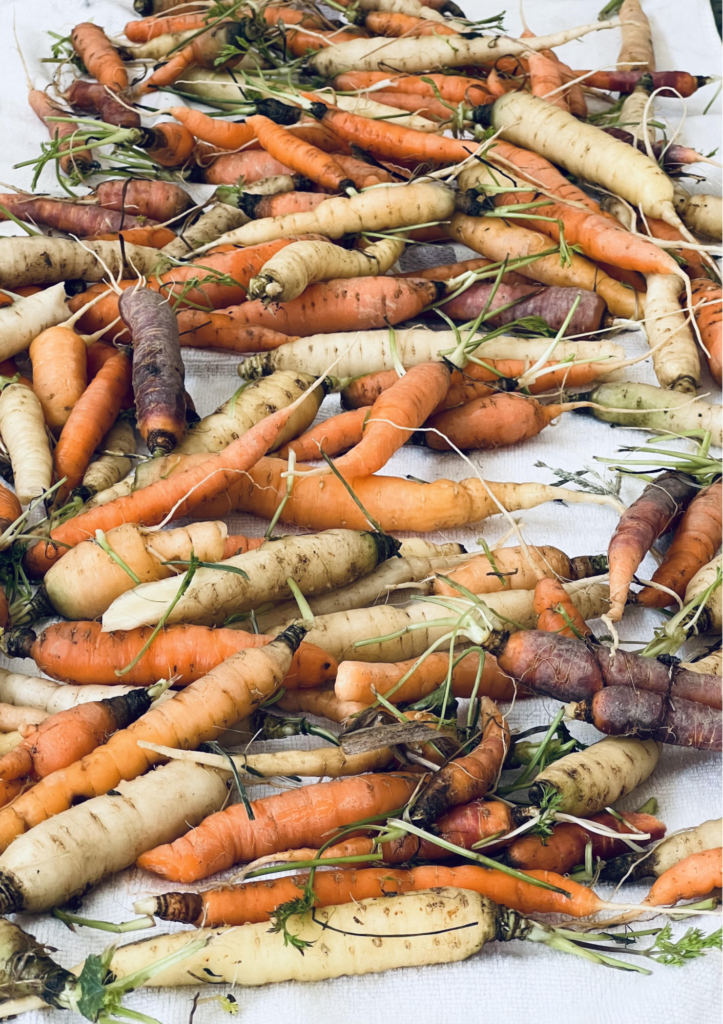
My neighbor’s lovely carrot harvest, which my dog, Tulip, has had a taste of!Photo courtesy of Julie Ireland Pomroy
So, can dogs eat carrots? They sure can! As a dog parent, it can be enjoyable to add human foods like carrots to your dog’s diet for an extra crunch or just to mix things up.
It’s essential to consult your veterinarian and get the OK to feed carrots (or any human food) to your dog. This is particularly important if they have dietary restrictions, health conditions, or are currently on a diet because of their weight or other health concerns.
Once you’ve got the OK from your vet, you and your dog can both enjoy carrots in all their crunchy orange glory.



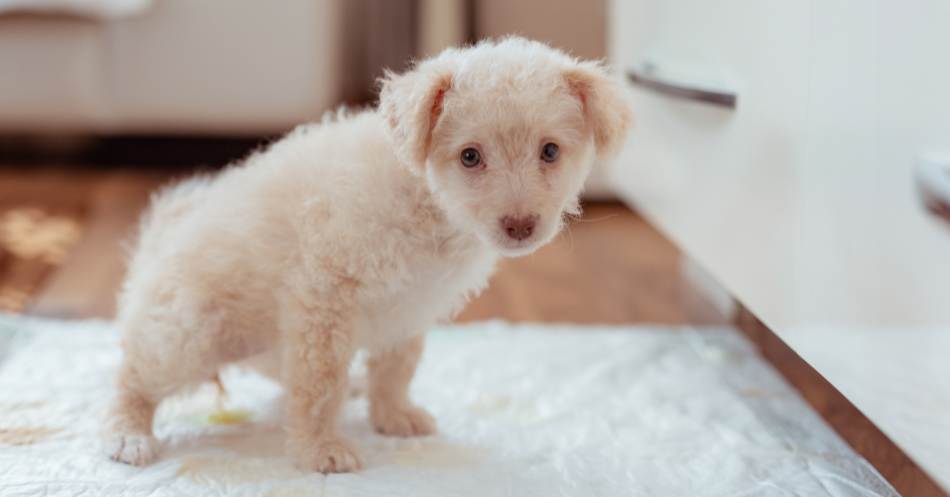
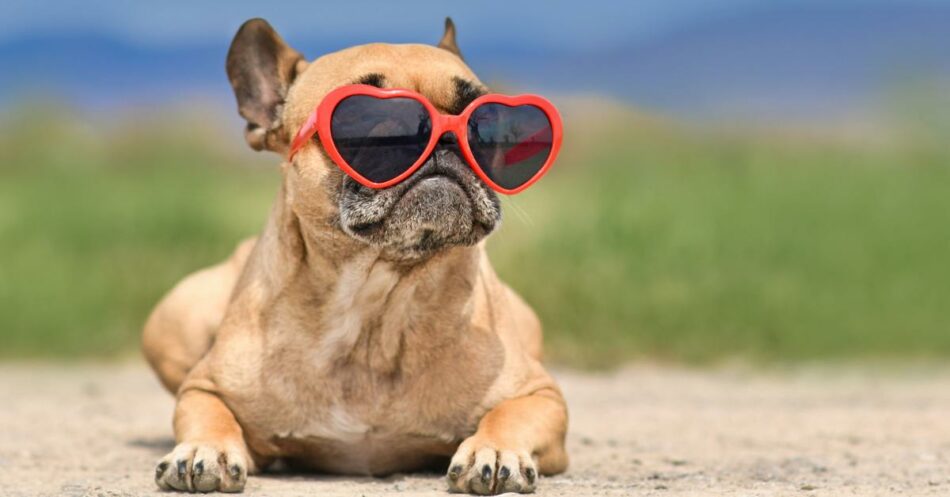

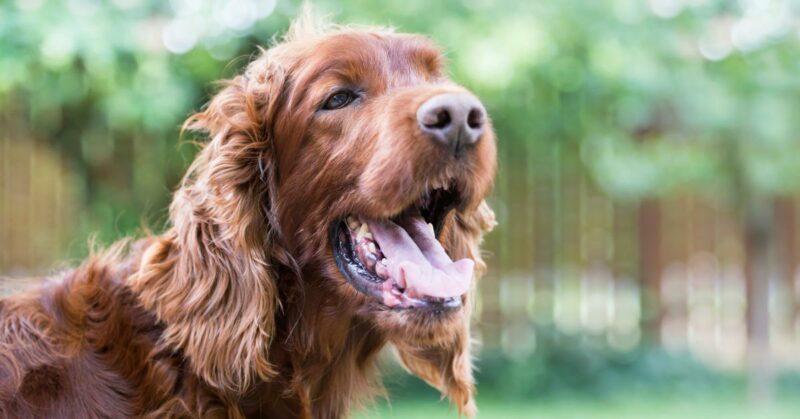
Comments (0)